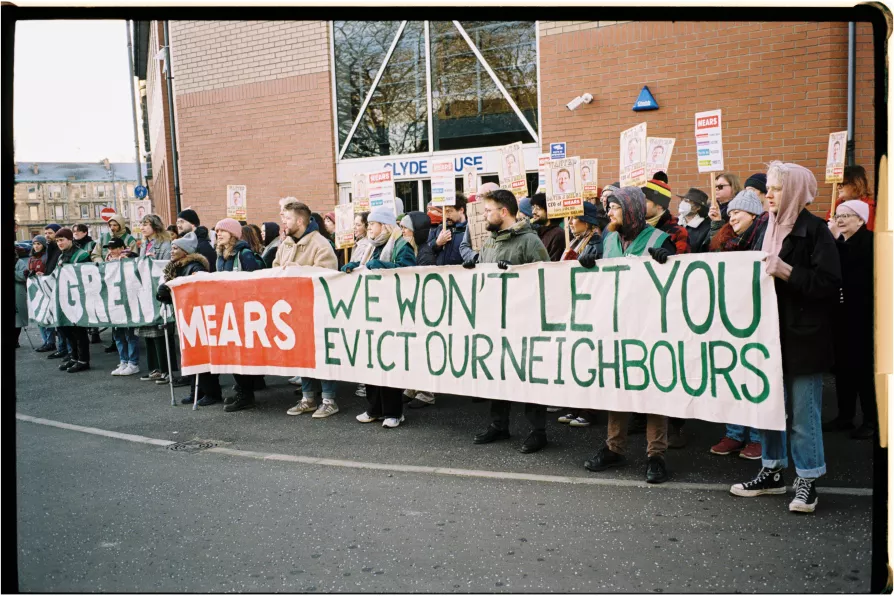The PM says Mandelson 'betrayed our values' – but ministers and advisers flock to line their pockets with corporate cash, says SOLOMON HUGHES

 Living Rent’s action outside Mears’ offices in Cessnock, Glasgow in November.
[C.A. Moses]
Living Rent’s action outside Mears’ offices in Cessnock, Glasgow in November.
[C.A. Moses]
SCOTLAND’S tenants are facing a wave of intersecting crises this winter. Three local authorities have now declared a housing emergency, and others will swiftly follow if the Scottish government offers no strategic response this week. Ahead of the Scottish Budget and with councils having nothing left to cut, Scotland’s tenants need to see bold solutions to the housing crisis and an urgent expansion of social housing through buy-back, compulsory purchase and action on empty homes.
Last month the Scottish government failed to name a crisis acutely felt across the country, as a Labour motion to declare a housing emergency was voted down in the face of rising homelessness and out of control rents. With the current private rented sector rent cap due to expire on April 1 2024, and no further protections yet announced ahead of the implementation of more robust rent controls by the end of this parliament, Scotland’s tenants now face an uptick in evictions, community displacement, and rising levels of poverty.
Always temporary and partial, the current 3-6 per cent rent cap offered some much-needed protections for those tenants renting privately in existing tenancies. However, the cap has never applied between tenancies to “new market” rents. As a result, rents in Scotland have continued to rise in line with the rest of the UK.

Our housing crisis isn’t an accident – it’s class war, trapping millions in poverty while landlords and billionaires profit. To solve it, we need comprehensive transformation, not mere tokenistic reform, writes BECK ROBERTSON













